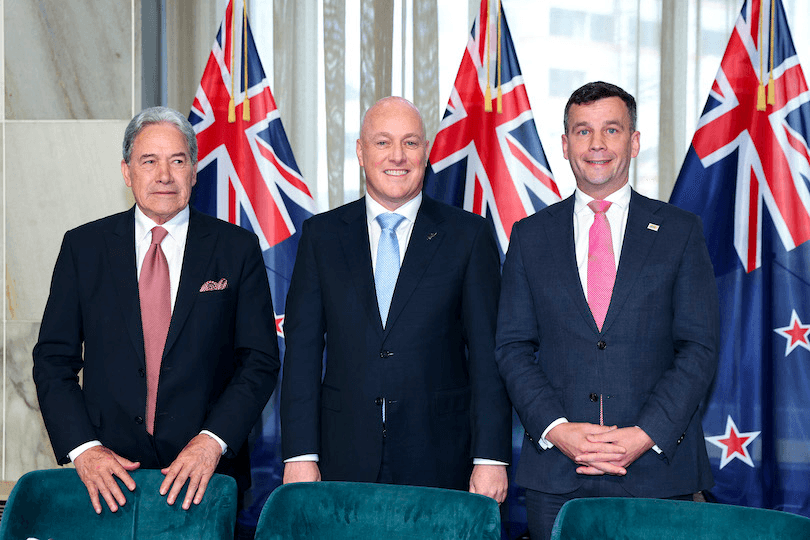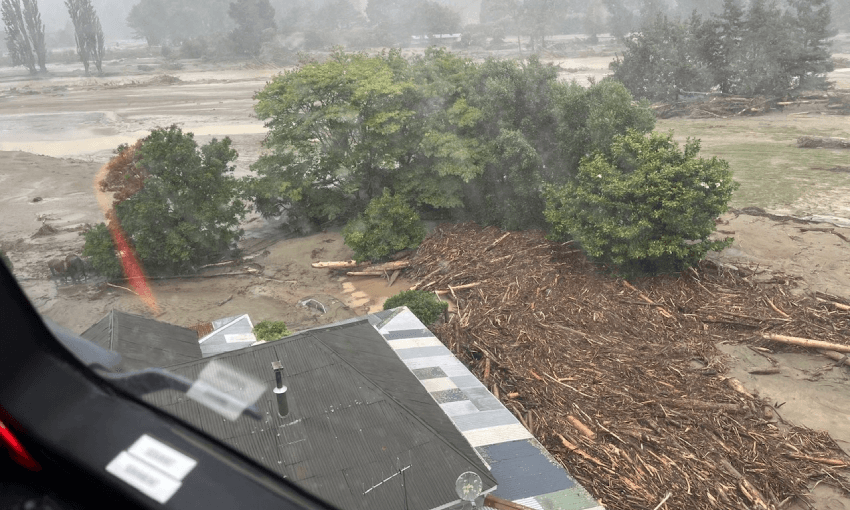In terms of environmental policy, the coalition agreements announced last week are objectively extreme. Despite the agreements opening with an acknowledgment of the “long-term economic, social and environmental challenges” the country faces, they then commit to dismantling environmental policy that has been built over decades by successive governments driven by public concern.
First, both agreements seek to do away with recently reformed resource management law, including the Natural and Built Environment Act. This is the country’s overarching environmental law, under which other policies such as freshwater and biodiversity policies will sit. It was finalised this year and was designed to be brought in gradually over the coming decade.
Not only do both coalition agreements commit to repealing this newer resource management law but, according to the National-Act agreement, to replacing the Resource Management Act with policy that has “enjoyment of property rights as the guiding principle”.
The extreme individualism demonstrated by this is the opposite of the collective, government-led response that is essential to addressing long-term environmental challenges like climate change and water pollution.

This National-led coalition’s proposals on environmental policy echo its widely condemned choices on tobacco in that they appear willing to sacrifice the health and wellbeing of the wider community to increase the wealth of industries and individuals who are already wealthy.
The Resource Management Act was brought in in 1991, passed under a National government. Its purpose: to guide the sustainable management of the country to “safeguard the life-supporting capacity” of the natural environment, protect the interests of future generations, and “avoid, remedy or mitigate” impacts on the environment.
Thirty years ago, a National government recognised that water, soil, air (etc, otherwise known as the natural world we all live in) needed to be looked after and that government had a responsibility to do this. It also recognised that as a society, we wanted to leave our children a healthy place to live.
Concern for the health of the environment has only increased since 1991, not just in New Zealand but internationally.
These coalition agreements and new National-led government, therefore, appear years, if not decades, out of touch with public sentiment and the direction the rest of the world is moving in. They also fail basic tests of understanding of the nature of the “economic, social and environmental challenges” highlighted in the first line of the documents’ preamble.
As the communities of Tairāwhiti and Hawke’s Bay understand after Cyclone Gabrielle, the safety and “enjoyment” of the places we live in rely in large part on the actions and responsibility of many other people; individuals, industries and agencies. Our health, safety, security and wellbeing takes a serious hit when silt and forestry slash barrel through a valley and into our home or business.

“Property” is the narrowest characterisation of people’s interaction with the natural world around them and our natural resources (this, of course, is to say nothing of the fact that those of us without property have rights when it comes to our environment too).
Take drinking water as an example. The vast majority of us don’t get our drinking water from our property: it comes from an aquifer, river or other waterbody. The safety and quality of that water is directly related to the actions of people across multiple properties and public land.
New Zealand’s environmental policies recognise this reality: that collective responses, guided by government, are essential to responsible care of the places people live in. This has been recognised for decades (though policy implementation and enforcement are another matter).
As many communities’ waterways (including drinking water sources) have become more polluted, as the impacts of climate change become clearer and the consequences for the health of communities and native biodiversity more widely understood, the public has continuously pushed for stronger policies to address these challenges. This includes the ban on offshore oil and gas exploration and the latest (and strongest) version of the National Policy Statement for Freshwater Management. These policies came about due to public pressure and are slated to go under both the National-Act and National-NZ First agreements.
Both agreements indicate the new government wants a return to the unrestrained and unthinking intensification of agricultural land that began in the early 2000s. Both emphasise a return to promotion of large-scale irrigation and water storage schemes that drove the intensification of agriculture in places like Canterbury. Such schemes have played a major role in nitrate contamination so serious that it breaches human drinking water standards. These human health standards are about 10 times higher than what is needed for the health of the wildlife that lives in waterways and, increasing evidence suggests, for the health of communities.
In 2017, Sir Peter Gluckman, the chief science adviser to then prime minister Bill English, produced a report on freshwater and wrote, “New ways of utilising our land for economic gain that also have lower environmental footprints need to be found and adopted if we are to meet the vision New Zealanders have for their fresh waters.” That same year the OECD warned, “New Zealand’s growth model, based largely on exploiting natural resources, is starting to show its environmental limits with increasing greenhouse gas emissions and water pollution.”
Improved policies in recent years are the result of public pressure, and critique from grassroots community groups to international organisations. With global shocks from climate change and the pollution of water and air hitting communities at home and around the world, the pressure for greater environmental protection through government policy will only get stronger and more intense: not only from our own people but from the international community, who have come to expect leadership from New Zealand.
A rational, responsible government, therefore, would be taking environmental policy forward, not backwards.
Source : The Spinoff









